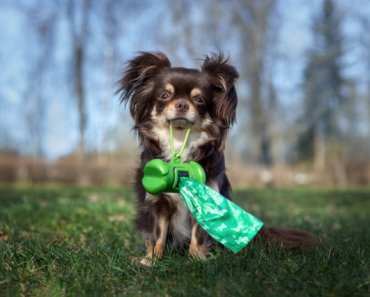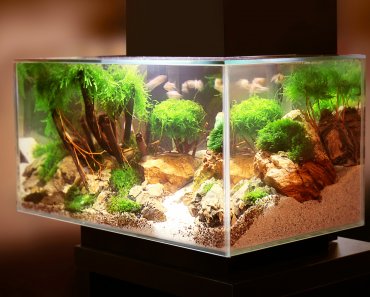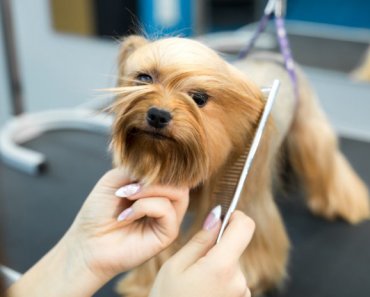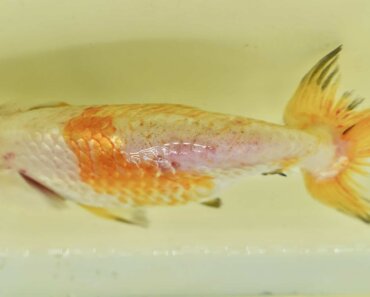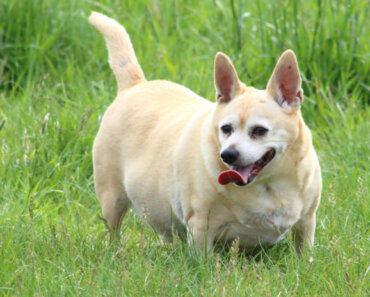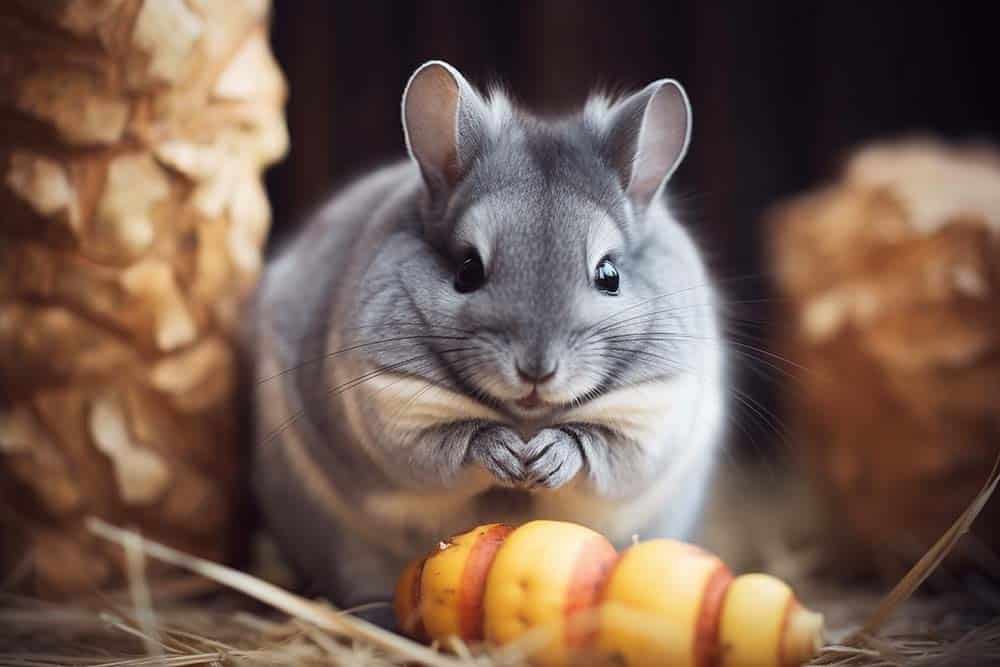
The Furry Little Creatures with Specific Nutritional Needs
Chinchillas are small, furry animals that are commonly kept as pets. They originate from the Andes Mountains in South America and have specific nutritional needs that need to be met in order for them to live long, healthy lives. It is important to remember that chinchillas are herbivores, which means that their diet consists of plants only.
Unlike other small animals such as hamsters or guinea pigs, they cannot digest animal proteins or fats. This means that their diet should be high in fiber and low in fat.
The Necessity of Hay
Hay should make up the majority of a chinchilla’s diet. It is not only essential for their digestive system but also helps keep their teeth healthy by providing the necessary wear needed to keep them properly ground down. Timothy hay, orchard grass hay, and oat hay are all suitable options for chinchillas.
Hay should always be available for your chinchilla to eat throughout the day. A lack of hay can cause digestive issues and even lead to death.
Not All Pellets Are Created Equal
Pellets should also be a part of your chinchilla’s diet but not at the expense of hay. Look for pellets specifically made for chinchillas since these will contain the nutrients they need and avoid those with nuts, seeds, or dried fruits added which contain excess fats and sugars. The recommended daily amount is around 1-2 tablespoons per day per adult chinchilla with less being given if supplemented by hay (the more hay in their diet, the fewer pellets they require).
Treats: Proceed With Caution
While treats can be a fun way to bond with your chinchilla, they should be used sparingly and only as an occasional supplement to a healthy diet consisting of hay and pellets. Treats should be given in moderation, no more than once or twice a week.
Some healthy treat options include small pieces of dried fruits like apples or cranberries, fresh vegetables such as carrots or cucumber slices, and small amounts of unsalted nuts. Avoid giving your chinchilla anything high in sugar, fat, starch or salt.
Why Hay is Crucial in a Chinchilla’s Diet
Hay is a staple food for chinchillas, and it should be available to them at all times. It provides the necessary fiber for healthy digestion, helps keep their teeth trimmed down and supports their overall dental health.
Chinchillas have very delicate digestive systems, and their diet needs to be balanced carefully. Without enough fiber from hay, it’s easy for chinchillas to become impacted or constipated.
There are several types of hay available that are ideal for chinchillas. Timothy hay is the most common type of hay used by chinchilla owners, as it’s low in protein and calcium but high in fiber.
Alfalfa hay is not recommended as a primary source of hay because it’s too high in protein and calcium but can be given as an occasional treat. In addition to Timothy hay, there are other hays that provide additional benefits for chinchillas.
Orchard grass provides more variety in texture than Timothy hay and can help with dental health by encouraging chewing. Meadow grass is another option that has a similar nutritional profile to Timothy hay but may provide some variety in taste.
Different Types of Hay & Their Benefits
Timothy Hay: As mentioned earlier, this is the most common type of hay used by chinchilla owners due to its nutritional balance. It’s good for maintaining healthy digestion and dental health.
Orchard Grass: This type of hay has longer strands than timothy hay which encourages chewing behavior while providing similar nutritional value. Meadow Grass: This type of grass has a sweet taste which makes it appealing to some chinchillas who won’t eat other kinds of hays as readily.
Oat Hay: This fragrant, soft-textured option can make up part (but not all) of your pet’s daily intake if they refuse other types or need an extra boost of nutrition. Overall, Timothy hay should be the main type of hay fed to chinchillas.
However, it can be beneficial to switch up the hay types occasionally to provide more variety in texture and taste. A mixture of different hays can also provide a balanced diet for chinchillas that may not be able to eat a large quantity of one type of hay.
Pellets
Nutritional value of pellets for chinchillas
Pellets are a great source of nutrition for chinchillas. They contain essential nutrients such as fiber, protein, and vitamins that keep your small furry friend healthy and active. Chinchilla pellets are specially formulated to meet the dietary needs of these adorable creatures and should make up a significant portion of their meals.
When selecting pellets for your chinchilla, it’s important to choose high-quality brands that are free from harmful additives. Pellets should be fresh and have a pleasant aroma.
Avoid buying in bulk or from stores with low turnover rates as this can lead to stale or spoiled pellets. It’s also essential to monitor the amount of pellets you feed your chinchilla daily.
Overfeeding can lead to obesity, which can cause health issues such as heart disease, arthritis, and liver problems. As mentioned, a good rule of thumb is to provide 1-2 tablespoons of pellets per day and supplement with hay, water, treats and vegetables.
Recommended brands and ingredients to look for
When choosing the right brand of pellet for your chinchilla, it’s important to consider the ingredients list carefully. Look for pellets made from high-quality ingredients like alfalfa hay or timothy grass hay.
Avoid those with added sugar or artificial preservatives as they can affect digestion in these small herbivores. Some recommended brands include Mazuri Chinchilla Pellets, Oxbow Essentials Chinchilla Food and Small Pet Select Pellets.
These brands offer premium quality food that meets all nutritional requirements without compromising on taste. Remember that every chinchilla is unique; some may prefer one brand over another; therefore it’s essential to offer different types until you find one that they seem to enjoy most!
Treats
Cautionary Notes on Feeding Treats to Chinchillas
While treats can be a fun way to interact with your chinchilla, it’s important to remember that they should only make up a small part of their diet. Chinchillas have sensitive digestive systems, and too many treats can lead to gastrointestinal problems. Additionally, some treats that are safe for other pets may be harmful to chinchillas.
When choosing treats for your chinchilla, make sure they are specifically made for chinchillas or small rodents. Avoid giving them sugary or fatty treats like candy or chips, as these can lead to weight gain and health issues.
Stick with natural options like dried fruits and vegetables. It’s also important not to overfeed your chinchilla treats.
A general rule of thumb is that treats should not exceed 10% of their daily intake of food. Too many treats can cause diarrhea and other digestive problems in addition to leading to health issues from obesity.
Safe and Healthy Treat Options
There are many safe and healthy treat options available for your chinchilla. Here are a few suggestions:
- Dried fruits: Chinchillas love dried fruits like apples, bananas, and papayas. Just make sure they are unsweetened.
- Dried herbs: Herbs like rose petals, dandelion leaves, and chamomile flowers not only make great snacks but also provide health benefits.
- Timothy hay cubes: These crunchy cubes offer a treat while also helping keep your chinchilla’s teeth healthy.
- Natural chew toys: Items like apple sticks and untreated wooden toys provide both entertainment and dental benefits. Remember that while these snacks are safe in moderation, they should never replace the essential elements in their regular diet such as hay pellets and fresh water.
The Importance of Clean Water for Chinchillas
Chinchillas, like all living creatures, require clean drinking water to survive. It’s essential to provide fresh water for your chinchilla daily as they cannot go long without it.
Chinchillas are susceptible to dehydration, which can cause significant health problems and even death if left untreated. It’s important to note that chinchillas are sensitive to the quality of their drinking water.
It’s recommended to use filtered or bottled water instead of tap water. Tap water may contain chlorine, metals, and other impurities that can harm your chinchilla’s health.
Tips for Keeping Water Fresh and Accessible
Water bottles are the best way to provide clean and fresh drinking water to your chinchilla. Unlike bowls, bottles prevent contamination from fur or bedding materials.
Ensure that the bottle is securely attached to the cage so that it doesn’t tip over or accidentally get knocked off. Cleanliness is critical when it comes to your chinchilla’s drinking water.
Change the water in the bottle every day, even if there is still some left in it. Rinse out the bottle thoroughly with hot soapy water and rinse again with hot clean water before refilling with fresh bottled or filtered water.
It’s worth investing in a spare bottle as well as they can become clogged with hay or bedding material particles over time. Always make sure there is enough room between the spout of the bottle and any part of your chinnies’ cage so they can easily drink from it without difficulty.
Providing clean and accessible drinking water is vital for maintaining a healthy and happy pet chinchilla. Regularly replace their drinking bottle with filtered or bottled freshwater every day while also ensuring their cage environment remains hygienic at all times will help keep them in good condition both mentally and physically!
Supplements
When supplements are necessary for a chinchilla’s diet
Chinchillas are herbivores that require a diet high in fiber and low in fat. Although hay and pellets provide most of the necessary nutrients, it is sometimes necessary to add supplements to maintain their overall health. Supplements should only be given when recommended by a veterinarian, as too much of certain vitamins or minerals can cause more harm than good.
One common reason for adding supplements to a chinchilla’s diet is when they suffer from dental problems. Chinchillas have continuously growing teeth that must be worn down by chewing food.
If your chinchilla has dental issues, it may have difficulty eating enough hay and pellets to meet its nutritional needs. In such cases, your vet may recommend adding powdered vitamin C or other supplements to the food.
Another reason why supplements are recommended is when a chinchilla has exhibited symptoms of nutritional deficiencies such as weakness, lethargy, or fur loss. In these cases, additional vitamins and minerals may be added to their diet temporarily until the symptoms subside.
Types of supplements available
There are many different types of supplements available for chinchillas, each with its own set of benefits. Some commonly recommended supplements include:
- Vitamin C: Chinchillas cannot produce their own vitamin C and therefore must obtain it through their diet or via supplementation. – Probiotics: These help promote healthy digestion by increasing the number of beneficial gut bacteria.
- Calcium: Chinchillas need calcium for strong bones and teeth but can develop kidney stones if given too much. – Digestive enzymes: These help break down food into smaller particles that can be more easily absorbed by the body.
- Omega-3 fatty acids: These support heart health and improve coat quality. It’s important to note that not all supplements are created equal and some may be harmful to chinchillas if given in excessive amounts.
If you’re not sure which supplements are right for your chinchilla, ask your vet for recommendations. Also, remember to always read the labels and follow the dosage instructions carefully.
Foods to Avoid
Chinchillas have a delicate digestive system, and feeding them the wrong foods can lead to serious health problems. Here are some common foods that chinchilla owners should avoid.
High-Fat Foods
Fatty foods, such as nuts, seeds, and high-fat pellets, can cause digestive problems in chinchillas. Excessive fat intake can lead to liver disease and obesity, which can shorten a chinchilla’s lifespan. Stick to low-fat pellets and hay for your chinchilla’s main diet.
Sugary Foods
Sugary treats like fruit or candy may seem like a good idea, but they’re not suitable for a chinchilla’s sensitive digestive system. Chinchillas are prone to diabetes and excess sugar intake can make it worse. Sugar also feeds harmful bacteria in the gut which can cause upset stomachs and diarrhea.
Oxalic Acid Foods
Some vegetables contain oxalic acid, which binds with calcium in the gut of chinchillas. This binding process makes it difficult for chinchillas to absorb calcium properly leading to issues such as metabolic bone disease or bladder stones. Vegetables like spinach should be avoided altogether while other vegetables like carrots or peppers should only be fed in moderation.
Pesticide-Contaminated Foods
Chinchillas are particularly susceptible to toxins such as pesticides due to their small size. Any food that has been sprayed with pesticides is toxic for your pet. Make sure all fruits and vegetables are washed thoroughly before feeding them to your pet; organic produce is always best whenever possible.
Conclusion: A Balanced Diet is Key to a Happy, Healthy Chinchilla
Chinchillas are adorable little creatures that require special attention to their diet in order to maintain their health and happiness. Foraging for hay and other foods in the wild, chinchillas have evolved to require a diet that is high in fiber, low in fat, and devoid of sugar or any other harmful additives. In order to ensure that your chinchilla has all the nutrients it needs to thrive, you need to provide it with an appropriate balanced diet.
Feeding your chinchilla a variety of hay, pellets, treats (in moderation), fresh water and the necessary supplements will ensure that its dietary needs are being met. The primary component of your chinchilla’s diet should be hay; it is packed with fiber which aids in digestion while also promoting healthy teeth by helping wear them down.
Chinchillas also need pellets for essential vitamins and minerals such as calcium; however, it should only make up 25% or less of their daily food intake. You may be tempted to give your chinchilla human food as treats but there are many foods that can be toxic such as chocolate or avocado.
Safe options include whole wheat crackers or small bits of dried fruit – but only as an occasional treat! Fresh water must always be present – if possible hang a water bottle inside the cage so they have access at all times.
Providing additional vitamins or minerals through supplements may become necessary if your chinchilla isn’t getting everything they need from their regular meals. It’s important not only what we feed our little furry friends but how we feed them too – avoid overfeeding even tempting treats!
Moderation is key! A healthy balanced diet will help keep weight under control which will reduce stress on joints leading to longer and happier lives for our pets.
In essence, providing your chinchilla with a well-balanced diet goes a long way in ensuring that it stays healthy and happy. By following the guidelines discussed in this article, you can be sure that your chinchilla is getting all the essential nutrients it needs to thrive.
Remember, every chinchilla is different so experiment with food options and monitor your pet’s weight to ensure they are getting what they need for optimal health. With a little bit of understanding about their dietary needs, you can help your chinchilla live a happy and healthy life!
While there are many foods you can feed your chinchilla safely it’s important that you avoid giving them anything inappropriate or toxic. Remember that they have special dietary needs so try to stick to the best options for optimal nutrition.
Hay, pellets, fresh water, and some healthy treats are often enough to keep your pet happy and healthy. If you have any questions about your chinchilla’s diet or digestive health, be sure to consult with your veterinarian.

